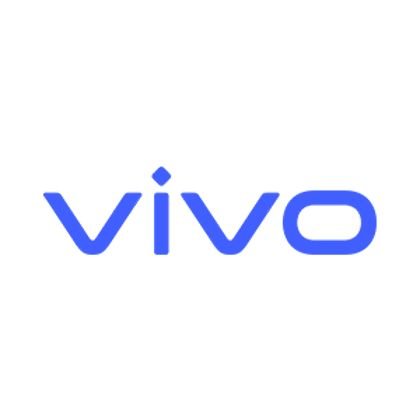
The quantum revolution no longer lives in theory. It now breathes through venture-backed startups, university spinouts, and bold disruptors redefining computation, communication, and encryption. In 2025, quantum computing stands at a tipping point—poised to move from experimental to commercial. Investors, enterprises, and governments now bet big on quantum startups leading this charge.
Here are the quantum startups you must watch this year, each breaking barriers in hardware, software, or quantum-as-a-service.
1. PsiQuantum – Scaling Quantum with Photons
PsiQuantum, based in Palo Alto, continues to chase the holy grail of quantum computing: one million qubits. Unlike many competitors using superconducting circuits or trapped ions, PsiQuantum builds fault-tolerant quantum systems with photonic qubits. This approach allows the startup to leverage existing semiconductor fabrication processes—a key move for scalability.
In 2025, PsiQuantum gears up to demonstrate its first large-scale prototype. Its strong partnerships with GlobalFoundries and other fabs give it a practical edge in scaling hardware. If successful, PsiQuantum will leapfrog many quantum hopefuls still stuck in the lab.
2. Rigetti Computing – From Hybrid to Hardware Excellence
Rigetti Computing, a pioneer in hybrid quantum-classical architecture, has sharpened its focus on performance. In 2024, the company launched its Ankaa-2 processor, a 128-qubit chip built with tunable couplers. It improved fidelity and coherence times, allowing more complex simulations and machine learning models.
In 2025, Rigetti eyes broader adoption through its quantum cloud platform. By enabling researchers to combine classical and quantum processing seamlessly, Rigetti offers an ecosystem-friendly model. The startup also collaborates with national labs and defense institutions, signaling real-world deployment.
3. Quantinuum – Quantum Security Meets Computation
Quantinuum emerged from the 2021 merger of Honeywell Quantum Solutions and Cambridge Quantum. Since then, it has become a powerhouse. Its ion-trap hardware and quantum NLP tools push the frontier in both quantum computing and quantum cybersecurity.
Quantinuum launched Quantum Origin, the world’s first commercial quantum-enhanced cryptographic key generator. In 2025, they plan to expand these tools into enterprise security frameworks. The company’s H-Series hardware, now on its fifth generation, continues to outperform many peers in error rates and gate fidelities.
4. Xanadu – Championing Photonic Quantum Computing
Toronto-based Xanadu takes a different path from many rivals. It uses photonic qubits instead of superconducting or trapped ion-based systems. In 2023, the company unveiled Borealis, a 216-mode quantum processor. The system performed Gaussian Boson Sampling, showcasing “quantum advantage” in a specific class of problems.
In 2025, Xanadu plans to launch its Xanadu Cloud, a user-friendly quantum-as-a-service platform. With speed and energy efficiency on its side, Xanadu appeals to industries that want access without the hardware burden.
5. Alice & Bob – Fighting Decoherence with Cat Qubits
French startup Alice & Bob bets on “cat qubits,” a type of superconducting qubit that resists errors by design. Traditional qubits suffer from decoherence, which limits their practical utility. Alice & Bob’s cat qubits use quantum error correction natively, reducing the number of physical qubits required for computation.
In 2025, Alice & Bob targets the release of its first logical qubit. This milestone could cut the resource requirements for building scalable quantum computers and bring down operational costs. Their lean team, backed by European funding, brings a fresh European flavor to the quantum scene.
6. IonQ – Commercializing Trapped-Ion Systems
IonQ became the first publicly traded quantum computing company via a SPAC in 2021. Since then, it has maintained momentum. IonQ uses trapped-ion technology, which allows precise control of qubits and high gate fidelity. The company claims its systems outperform many quantum rivals in actual error rates.
In 2025, IonQ expands its quantum computing services to industrial clients. Its systems now support quantum chemistry simulations for pharma and supply chain optimizations for logistics. IonQ’s partnerships with Amazon Braket and Microsoft Azure give it a solid distribution channel.
7. Q-CTRL – The Software Side of Quantum Resilience
Australian startup Q-CTRL doesn’t build quantum hardware—it optimizes it. It develops control systems and error suppression software that enhance the performance of existing quantum machines. In short, Q-CTRL helps quantum systems stay stable and usable longer.
Their flagship product, Black Opal, helps users build intuition for quantum control. Meanwhile, Fire Opal, their AI-driven control system, automates noise mitigation. In 2025, Q-CTRL partners with multiple hardware vendors to integrate its tools natively. This move ensures that the company remains indispensable across platforms.
8. Seeqc – Fusing Classical and Quantum Processing
Seeqc builds digital quantum processors using superconducting technology. The startup embeds classical logic directly onto the quantum chip, minimizing latency between quantum operations and classical controls. This hybrid model aims to make quantum computing faster and more efficient.
In 2025, Seeqc rolls out its chipsets optimized for real-time data analysis. This leap opens the door to quantum machine learning and edge processing. Seeqc’s integration-first approach makes it a solid partner for telecom and cloud providers looking for post-silicon advantage.
9. SandboxAQ – Quantum Meets AI
SandboxAQ, a spinout from Alphabet, merges quantum tech with AI for enterprise use cases. Unlike companies building general-purpose quantum computers, SandboxAQ focuses on quantum-safe cryptography, AI-enhanced materials simulation, and drug discovery.
In 2025, the company expands its reach in finance and national defense. SandboxAQ provides post-quantum cryptography toolkits to enterprises transitioning away from vulnerable encryption methods. Its AI tools also help pharmaceutical firms simulate molecular interactions faster than traditional methods allow.
10. Riverlane – Building the Quantum OS
UK-based Riverlane wants to become the Linux of quantum computing. Its operating system, Deltaflow, acts as a middleware layer between quantum hardware and application developers. By standardizing control, calibration, and error correction, Riverlane makes quantum development smoother and more scalable.
In 2025, Riverlane works with multiple hardware startups, including Oxford Ionics and Seeqc, to integrate Deltaflow into quantum stacks. This collaboration gives developers a unified framework—similar to what Windows or Linux did for classical computing.
The Road Ahead
Quantum computing still lives in the pre-iPhone era—powerful in theory, experimental in practice. But these startups push us closer to commercialization. They don’t just chase breakthroughs; they engineer reliability, scale, and real-world value. With diversified strategies across hardware, software, cybersecurity, and services, these ventures form the core of a rapidly maturing ecosystem.
Investors, policymakers, and developers must pay close attention. In 2025, quantum is no longer a distant bet. It’s a field where startups reshape the edge of possibility every quarter. From scalable hardware platforms to robust error correction and commercial APIs, these companies bring quantum down to Earth—and closer to your next application.







